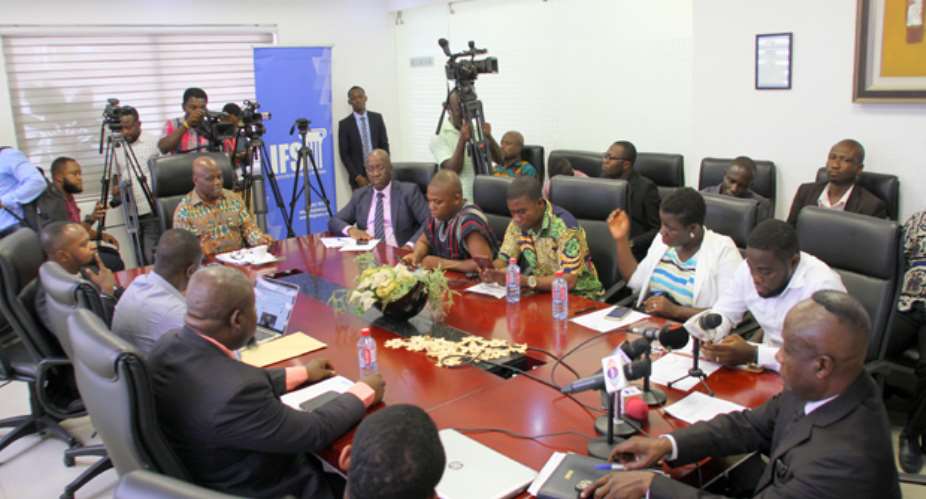A policy think tank has warned that the banking crisis could recur in future if some of the fundamental factors that gave rise to the banking crisis in the country not are seriously addressed.
According to the Institute for Fiscal Studies (IFS), there was the need to strengthen corporate governance and risk management practices and also reinforce safety nets such as customers' information and credit status to reduce the incidence of Non-Performing Loans (NPLs).
At a pre-budget conference held in Accra Thursday, Dr John Kwakye, a senior fellow at the institute, lauded government for its management of the banking crisis.
“The intervention measures introduced by the Bank of Ghana (BoG) will certainly result in a more consolidated banking industry.”
He also called on government to honour its payment obligations promptly to reduce associated proxy borrowing from banks.
“Sustaining macro-economic stability is also key, as persistent instability will quickly erode the enhanced capital base of banks, thereby necessitating another round of recapitalisation.
“Not giving special dispensation to local banks to allow them more time to recapitalise in view of their peculiar circumstances was also probably a missed opportunity that could have saved many from eventual collapse.”
Dr Kwakye revealed that Ghana has a large deficit in infrastructure development mainly as a result of inadequate public investment over the years since the capital budget has been continually trimmed amid revenue shortfalls, coupled with growing recurrent and statutory outlays.
“Like many African countries, Ghana lacks enough domestic resources to finance infrastructure, as such borrowing would seem an inevitable option. Given the large size of infrastructure deficit, the financing requirements are equally huge. Ghana's access to bilateral and multilateral resources is normally limited and after the country attained lower-middle income status in 2007 and started producing oil from 2010, its access to especially concessional resources has been significantly reduced.”
Furthermore, he drew attention to the availability of the Ghana Infrastructure Investment Fund (GIIF) with initial seeded capital of $250 million and wondered why the fund was not playing its original role of funding a diversified portfolio of infrastructure projects to promote national development.





 Saglemi Housing Project will not be left to rot – Kojo Oppong Nkrumah
Saglemi Housing Project will not be left to rot – Kojo Oppong Nkrumah
 Transport fares hike: GPRTU issue two-day ultimatum
Transport fares hike: GPRTU issue two-day ultimatum
 ARC endorses Alan as presidential candidate – Buaben Asamoa
ARC endorses Alan as presidential candidate – Buaben Asamoa
 Akufo-Addo appoints Kwasi Agyei as new Controller and Accountant-General
Akufo-Addo appoints Kwasi Agyei as new Controller and Accountant-General
 PNC dismiss reports of mass resignations
PNC dismiss reports of mass resignations
 PAC advocates for revenue collectors to be engaged on commission basis, not full...
PAC advocates for revenue collectors to be engaged on commission basis, not full...
 Genser Energy commissions 110km of natural gas pipeline at Anwomaso
Genser Energy commissions 110km of natural gas pipeline at Anwomaso
 Naa Torshie calls for tolerance, peace ahead of 2024 election
Naa Torshie calls for tolerance, peace ahead of 2024 election
 Asantehene commends Matthew Opoku Prempeh for conceiving GENSER Kumasi Pipeline ...
Asantehene commends Matthew Opoku Prempeh for conceiving GENSER Kumasi Pipeline ...
 Let’s do away with ‘slash and burn politics’ in Ghana — Dr Adutwum
Let’s do away with ‘slash and burn politics’ in Ghana — Dr Adutwum
